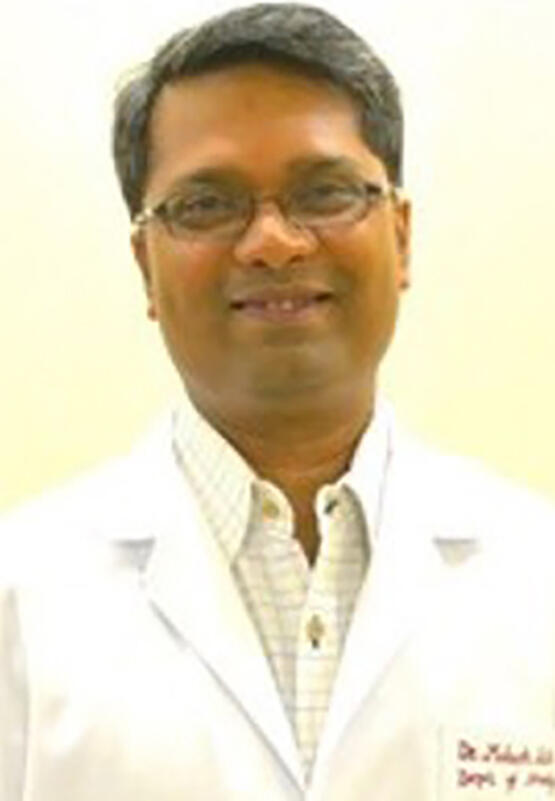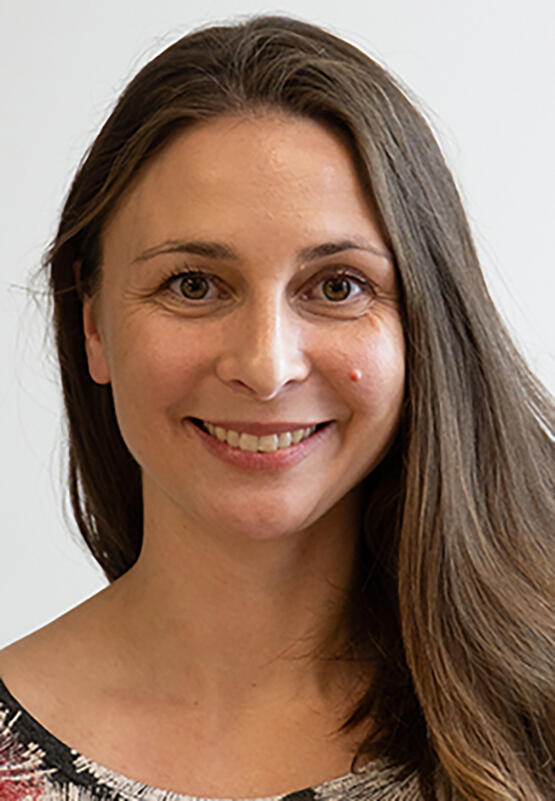The Team

Dr. Aravind Ganesh
MD, DPhil(Oxon), FRCPC
Principal Investigator
Dr. Aravind Ganesh is a Vascular and Cognitive Neurologist. He completed his MD degree at the University of Calgary, followed by a DPhil in Clinical Neurosciences at the University of Oxford’s Centre for Prevention of Stroke and Dementia as a Rhodes scholar. He completed his neurology residency in Calgary, followed by a combined fellowship in stroke and cognitive neurology. Dr. Ganesh is a Fellow of the Canadian Stroke Consortium, and is actively involved in the development of best-practice guidelines for stroke and dementia care. His clinical research is focused on the natural history, prevention, and treatment of stroke and cognitive impairment.

Dr. Mahesh Kate
MBBS, MD, DM, FRCPC
Collaborating Site Co-Investigator
Mahesh Kate is an Associate Professor with the Division of Neurology. His research focuses on secondary stroke prevention with sustainable interventions and improving stroke patients' outcomes by understanding pathophysiological mechanisms. He co-designed the first study for the Indian Stroke Clinical Trial Network (INSTRuCT). SPRINT INDIA (Secondary Prevention by Structured Semi-Interactive Stroke Prevention Package in India) study enrolled 4298 patients in 31 centres. This study was recently published in Lancet Global Health and highlighted the need for education to improve compliance. With the help of the SMART network, he is working on the precision and comfortable delivery of remote ischemic conditioning (RIC).

Dr. Eric Smith
MD, MPH
Co-Investigator
Dr. Eric Smith is Professor of Neurology, Radiology, and Community Health Sciences at the University of Calgary, and the holder of the endowed Katthy Taylor Chair in Vascular Dementia. He is the Medical Director of the Cognitive Neurosciences Clinic and a member of the Calgary Stroke Program. He directs the Clinical and Research Fellowship program in Cognitive Neurosciences. Dr. Smith graduated from McGill University, trained in Neurology in teaching hospitals of Harvard Medical School, and was Assistant Professor of Neurology at Harvard University before being recruited to Calgary in 2008. He Co-Chairs the Canadian Stroke Best Practices Advisory Committee of the Heart and Stroke Foundation, and is a member of the Executive Committee of the Canadian Consensus Conference on the Diagnosis and Treatment of Dementia.

Dr. Bogna Anna Drozdowska
PhD, MSc
Study Coordinator
Dr. Drozdowska is a Postdoctoral Associate in the Department of Clinical Neurosciences, under the supervision of Dr. Ganesh at the University of Calgary. She obtained a Master’s Degree in Psychology at the Warsaw School of Social Sciences and Humanities in Poland, followed by a Master’s Degree in Brain Injury Rehabilitation at the University of Birmingham in the UK. She completed her doctoral studies in Scotland at the University of Glasgow, focusing on the prognosis of cognitive change following stroke. Her research interests center on the natural history, prediction, and prevention of vascular cognitive impairment.

Cody Doolan
MSc
Data Sciences Lead
Cody Doolan is the Data Science Lead for the Clinical Trials Stroke Group in the Department of Neuroscience, where he also directs the imaging core labs. He earned a bachelor’s degree from Dartmouth College, a master’s degree from the University of Calgary, and is currently completing his PhD in Clinical Neuroscience. His research focuses on computational neuroscience, as well as data and imaging support for clinical trials.

Kaden Lam
BHSc
Graduate Student
Kaden is a Neuroscience PhD student under the supervision of Dr. Aravind Ganesh at the University of Calgary. He received his Honours Bachelor of Health Sciences with a Biomedical Sciences Major and a Psychology Minor from the University of Calgary. He is affiliated with the Cumming School of Medicine and is a trainee at the Hotchkiss Brain Institute. He is also a member of the Children’s Environmental Health Clinic (ChEHC) World Health Organization collaborating centre at the University of Alberta. Kaden’s research focuses on the clinical translation of remote ischemic conditioning into populations of pre-hospital acute stroke, cerebral small vessel disease, and primary progressive multiple sclerosis in addition to identifying biomarkers involved after remote ischemic conditioning.

